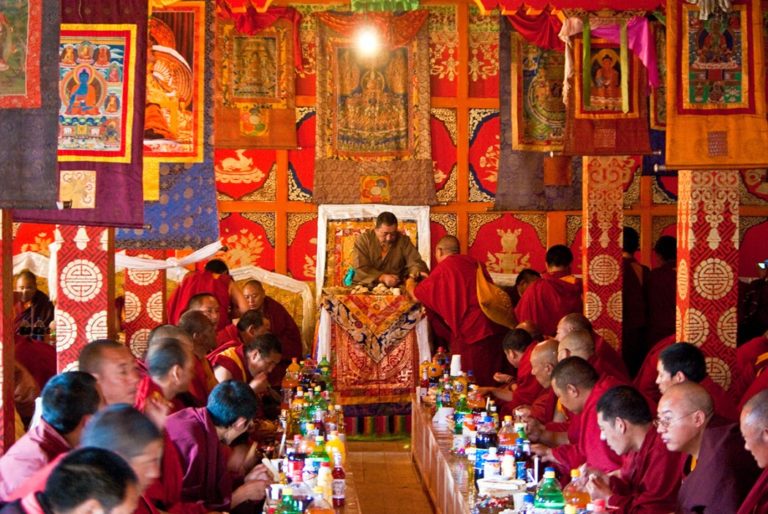Original article: Hong Kong Free Press
Chinese authorities on Monday defended a ban on schoolchildren attending informal Tibetan language classes taught by Buddhist monks in western China, as religious and cultural freedoms in the country come under increasing pressure.
A county in western Qinghai — a province with a large Tibetan population that is mostly Buddhist — in December ordered an immediate halt to informal language classes taught by monks during the winter school holidays.
The lessons taught in monasteries in the province bordering Tibet have gained popularity among parents as a way for their children to learn a language that is being sidelined from the official curriculum.
It follows a similar ban last summer barring Tibetan students from taking part in religious activities during their holidays.
The provincial government on Monday told AFP that the lessons were “illegal” and said the monasteries were “safety hazards” as well as being “ill-equipped” to teach students.
“According to Chinese law… education is conducted by the government. No organisation or person can use religion as a means of obstructing the state education system,” it said in a statement.
It added that the classes pose a financial burden to students and their families, and contravene regulations to reduce the workload of students.
Monasteries and monks who do not follow the new rules will be “dealt with in accordance with the law”, the statement said.
The regulations follow similar edicts by the ruling Communist Party in other regions with large ethnic minority populations, starting with a clampdown on Islam in Xinjiang, a Muslim-majority region in the far west.
Rights groups have accused the Chinese government of curbing religious freedoms and cultural rights.
“Qinghai authorities’ responses about the ban strain credulity,” Human Rights Watch China researcher Sophie Richardson said.
“They fail to address previous official comments demonising these informal classes, and are reminiscent of the after-the-fact justifications for other instances of disregard for cultural rights and religious freedom.”
China’s constitution protects free speech and religion but critics say in reality there is little room for opinions that challenge government policies.

